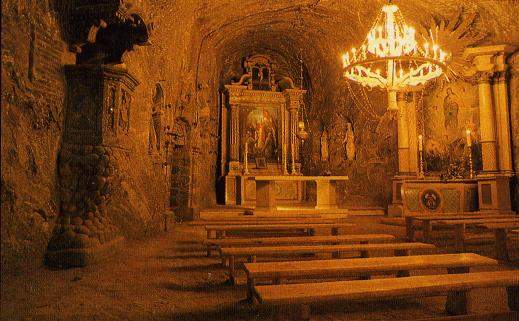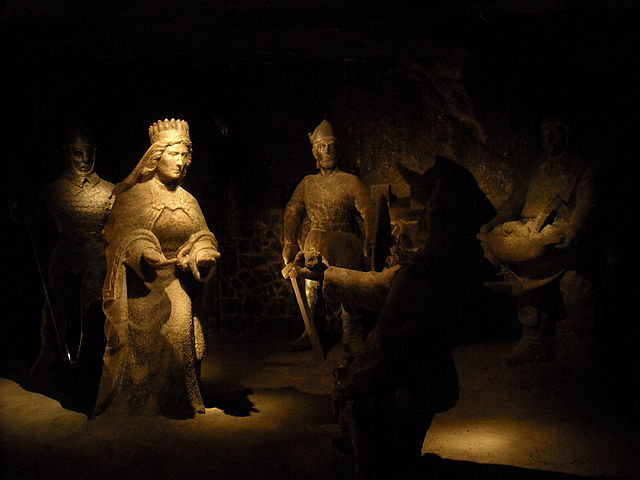
I’ve been reading Salt: A World History by Mark Kurlansky. It begins in ancient China, documenting how this mineral, which is necessary to human life, also became one of the first forms of currency and one of the first economic commodities, allowing people to preserve and transport food.
In today’s Office of Readings is a commentary by St John Chrysostom on the Gospel of Matthew, about “you are the salt of the earth.” Previously when reading this passage I’ve always heard commentary about how salt is flavorful, without it food tastes bland. But that gloss misses so much about salt.
First, salt isn’t just a nice flavoring. Without salt we will die. Our bodies need sodium to transport nutrients and oxygen, transmit nerve impulses, and move muscles, including the heart.
Second —- and this is especially important in light of the Gospel passage—- salt preserves food from spoiling. Salt prevents rot and corruption. When salt loses its savor, it’s not just that food doesn’t taste good (as when I forget to put salt into my bread or my meat or potatoes lack salt.) In the world before refrigeration, salt was the primary means of preserving food. If salt loses its savor, the food spoils. And when the food spoils people starve. This is what John Chrysostom highlights in his commentary.
You are the salt of the earth. It is not for your own sake, he says, but for the world’s sake that the word is entrusted to you. I am not sending you only into two cities only or ten to twenty, not to a single nation, as I sent the prophets of old, but across land and sea, to the whole world. And that world is in a miserable state. For when he says: You are the salt of the earth, he is indicating that all mankind had lost its savour and had been corrupted by sin. Therefore, he requires of these men those virtues which are especially useful and even necessary if they are to bear the burdens of many. For the man who is kindly, modest, merciful and just will not keep his good works to himself but will see to it that these admirable fountains send out their streams for the good of others. Again, the man who is clean of heart, a peacemaker and ardent for truth will order his life so as to contribute to the common good.
Do not think, he says, that you are destined for easy struggles or unimportant tasks. You are the salt of the earth. What do these words imply? Did the disciples restore what had already turned rotten? Not at all. Salt cannot help what is already corrupted. That is not what they did. But what had first been renewed and freed from corruption and then turned over to them, they salted and preserved in the newness the Lord had bestowed. It took the power of Christ to free men from the corruption caused by sin; it was the task of the apostles through strenuous labour to keep that corruption from returning.
Have you noticed how, bit by bit, Christ shows them to be superior to the prophets? He says they are to be teachers not simply for Palestine but for the whole world. Do not be surprised, then, he says, that I address you apart from the others and involve you in such a dangerous enterprise. Consider the numerous and extensive cities, peoples and nations I will be sending you to govern. For this reason I would have you make others prudent, as well as being prudent yourselves. For unless you can do that, you will not be able to sustain even yourselves.
If others lose their savour, then your ministry will help them regain it. But if you yourselves suffer that loss, you will drag others down with you. Therefore, the greater the undertakings put into your hands, the more zealous you must be. For this reason he says: But if the salt becomes tasteless, how can its flavour be restored? It is good for nothing now, but to be thrown out and trampled by men’s feet.

What does it mean to be salt of the earth? It means that you have within you something that the world desperately needs to save it, preserve it from the rot and corruption of sin. What you have been given, the saint says, is not for yourself but for the rest of the world. Your faith, your virtues, the grace of God, the sacraments, these are given to you so that you may be the anti-bacterial salt that stops the growth of evil in the world. I keep coming back to Chrysostom’s repetition of that word “corrupted”.
Salt is applied to prevent rot and decay. The ancient Egyptians preserved the bodies of their dead in salt. They preserved meat, fish, olives, vegetables, in salt brine to stave off famine, to prevent food-born illness. Salt brings life and nourishment. In our spiritual lives, then, salt is that which keeps evil from growing.
Let’s look at that again:
“You are the salt of the earth. What do these words imply? Did the disciples restore what had already turned rotten? Not at all. Salt cannot help what is already corrupted. That is not what they did. But what had first been renewed and freed from corruption and then turned over to them, they salted and preserved in the newness the Lord had bestowed. It took the power of Christ to free men from the corruption caused by sin; it was the task of the apostles through strenuous labour to keep that corruption from returning.”
Salt cannot restore what is rotted, St John says, that is the work of Christ, who is capable of giving new life to dead bones, to restore life to rotted corpses, to undo the work of death and corruption. But once Christ has restored life to those who were once corrupted, they need salt to prevent the corruption from returning. Salt preserves the newness, the goodness, the freshness. The task of the apostles was to preserve those who had been restored.
“If others lose their savour, then your ministry will help them regain it. But if you yourselves suffer that loss, you will drag others down with you. Therefore, the greater the undertakings put into your hands, the more zealous you must be.”
Those words seem prophetic as I look at the corruption in the Church today. Far too many of the successors of the apostles have acted to spread rot and corruption instead of acting to prevent it. As St John says, those successors of the apostles who have lost their savor have dragged others down with them.
But, as Chesterton reminds us, we must none of us grow complacent. If I want to know what is wrong with the world, I must first look within myself before I start casting stones and plucking splinters. Certainly there is great evil abroad, but I cannot be so hyperfocused on fighting the evil out there that I neglect the battlefield within my own heart.
We are all called to be salt. Likewise, we are all capable of losing our savor, clergy and laity. None of us are exempt from the need which is incumbent on all Christians: to examine our lives, to repent and be faithful to the Gospel.
And from now on, I’m going to be thinking differently about what it means for us, for me, to be called to be salt.

via Wikimedia Commons
** homily by Saint John Chrysostom on the Gospel of St. Matthew (Hom 15, 6-7: PG 57, 231-232)






